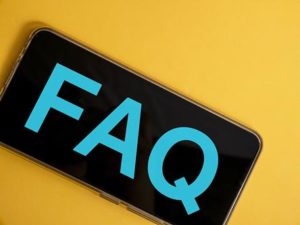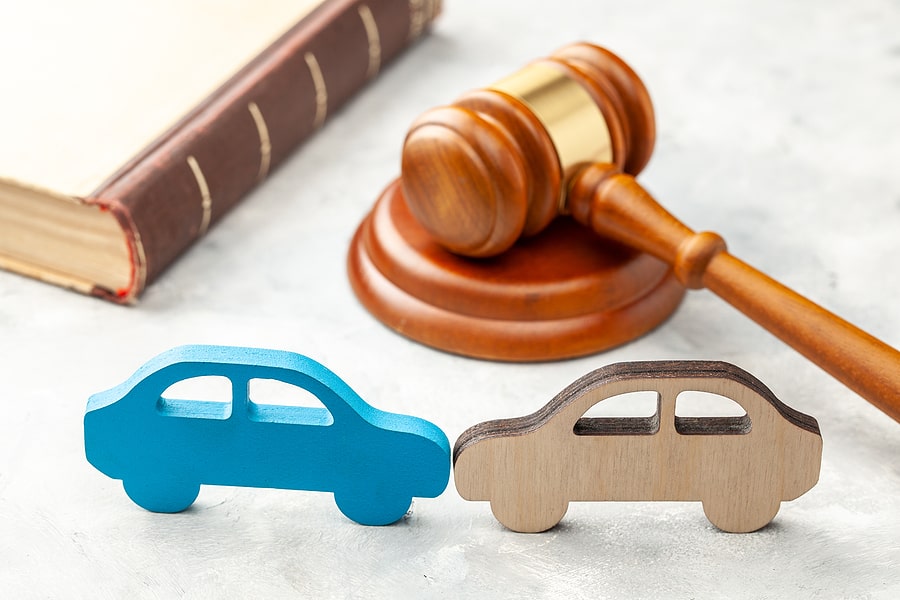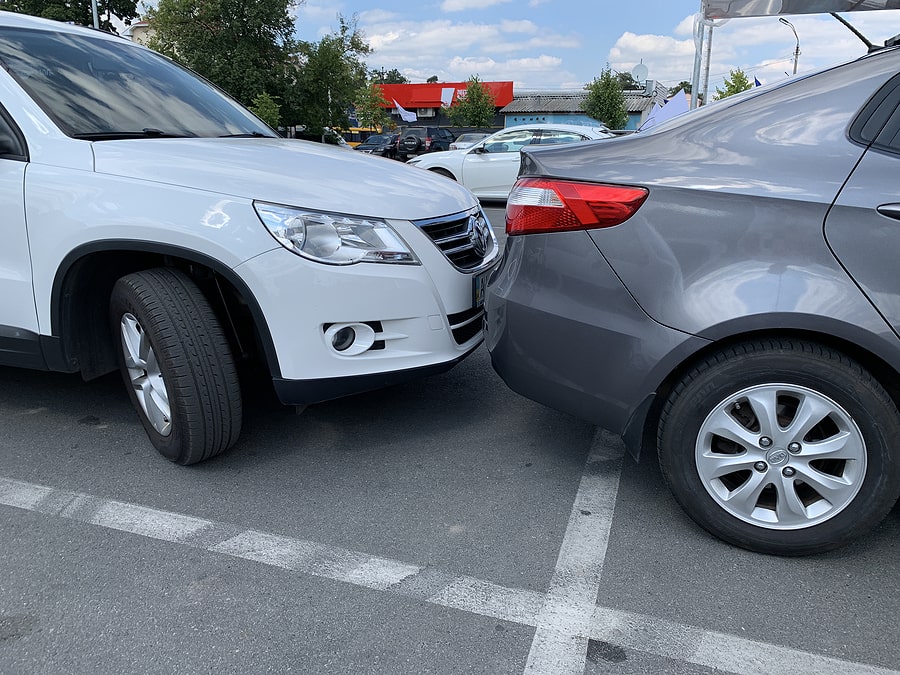When you’ve been hurt in a car accident, the last thing on your mind is “how does a car accident lawsuit work?” But when the dust settles and you’re left with thousands of dollars of bills, how will you get help? An auto accident lawsuit may be the only way.
Many people hesitate to begin the process of a car accident claim or car accident lawsuit simply because they are afraid of the unknown. This page aims to clear up some of that confusion. Let an experienced auto accident lawyer walk you through the whole process! Read below to learn more about how a car accident claim works.
Let’s take you from crash to compensation.
Table of Contents
Considering A Car Accident Lawsuit?
If you get hurt in a car accident caused by someone else’s carelessness, it is your legal right to file a claim for compensation for your losses.
In a perfect world, you would submit a claim and swiftly receive a check in the mail that covers all your expenses. However, it’s not that simple.
Car accidents often involve extensive investigation, negotiation, and even lawsuits.
It might seem like a hassle, but consider this: a settlement award from a car accident claim can help you pay for your medical bills, auto repairs, rental car, replacement vehicle, lost wages, emotional stressors, and much more.
Below are the typical steps in a car accident claim.
Phases of A Car Accident Case
Filing a Car Accident Claim
After any auto accident, inform your car insurance provider. You’ll find some relief if your policy includes collision coverage, but you can also go after the at-fault driver’s insurance, so call and let both your own car insurance company and the other driver’s car insurance company know that you are filing a claim. Even though the other driver may be responsible for the crash, their car insurance company will be the one paying you.
TIP: Write down your claim number and the name of the claims specialist assigned to you, if applicable.
Consulting A Lawyer
After a car accident, it’s always a good idea to get legal advice. Insurance companies have their own attorneys who know the ins and outs of car accident laws; why shouldn’t you? We wish you luck on your quest to find the best car accident attorney. There are plenty of options to choose from, but if you’d like a 100% FREE consultation right now, contact us. There’s zero risk!
When you meet with a car accident lawyer for an initial consultation, whether virtually, over the phone, or in person, be prepared to answer some basic questions about the accident, your injuries, your expenses, and more. The car accident lawyer will evaluate your case and let you know your chances of success. If you both want to move forward with a claim, you will be asked to review and sign a retainer agreement. Next, your car accident lawyer will reach out to insurance companies and any other relevant parties to let them know you have legal representation. They will make phone calls and send letters in order to report your accident and make sure your claim is officially filed.
TIP: Since most personal injury lawyers work on a contingency fee basis, you pay nothing upfront. The retainer agreement will specify the fee amount that your attorney will take from the final settlement. We only get paid if you get paid!
Reviewing Insurance Policies
When it comes to car accidents, Texas is a comparative fault state, also known as a “tort state.” for car accidents. This means when you get into a car accident, you compare who is more at fault. If a driver is found to be primarily at fault for an accident, they must take financial responsibility for it. Liability insurance exists to help cover accidents like these. Your lawyer can determine the limits of the at-fault driver’s insurance policy.
TIP: While only liability insurance is required in the state of Texas, you should double-check your policy to see if it can help. Collision coverage and personal injury protection (PIP), for example, could cover some or all of your expenses. Uninsured/underinsured motorist coverage pays if you’re hit by someone who did not have insurance, or didn’t have enough to pay the full cost of your damages. It also pays if you’re in a hit-and-run accident.
Receiving Medical Treatment
Your health is our number one priority. Even if you weren’t whisked away from the scene of the crash in an ambulance, and even if you feel “fine” now, you need to be properly examined. If you don’t catch them early enough, many soft tissue injuries can worsen over time and leave you dealing with chronic pain.
When speaking with your doctor, be fully honest about your pain levels. Don’t try to grin and bear it. In order to have a clearer estimate of your total medical expenses, we advise you to complete all recommended medical treatments before pursuing your case.
If you’re afraid you can’t afford medical care, don’t worry. A car accident lawyer can connect you to medical providers at no upfront cost. We can even help schedule your appointments and arrange transportation! How can we do this, you ask? By submitting a letter of protection. A letter of protection, also known as an LOP, is basically an “I.O.U.” which guarantees a medical provider will receive their payment from a pending claim settlement or future lawsuit award. This means medical providers agree to treat you right now and postpone their payment collection until your case is finalized. While you recover, the medical bills will go to your attorney for proper recordkeeping, but you can also request your own copies.
TIP: Follow your doctor’s orders and never miss an appointment! Avoid gaps in treatment, or else they may be held against you.
Collecting Evidence
Before you file a lawsuit, you must first lay the foundation for your case. The ultimate goal of this phase is to determine liability and prove how you have suffered. A car accident lawyer can do this by collecting evidence like medical records, police accident reports, bills, witness testimonies, surveillance footage, and more.
We will obtain all available evidence to strengthen your case. We will also enlist the help of investigators and experts like crash reconstruction specialists.
As you continue your medical treatments, your lawyer will order copies of your bills and medical records to include in your case. A prognosis report from your doctor may also be submitted as part of an expert witness testimony.
TIP: A picture tells a thousand words! Send your lawyer any photos you took at the scene of the accident, as well as photos of any property damage or injuries and bruises you suffered.
When you file your claim, insurance adjusters will begin their own investigation, too. This involves inspecting both vehicles (which might have been towed to a repair shop or a salvage yard) and trying to collect statements from anyone involved. Whether they are a salaried staff adjuster or an independent adjuster, rest assured they are acting in the best interests of the insurance company.
TIP: Investigators from both sides will dig deep. This means the negligent driver’s insurance claims adjusters might even check your social media accounts! Watch what you post and stay tight-lipped about your accident while the investigation is ongoing.
Submitting A Letter of Demand
After you complete all recommended medical treatment and physical therapy, your car accident attorney will obtain copies of your medical records and bills. They will also request payroll information from your employer to determine the amount of wages you lost as a result of the accident. These documents are included in a letter of demand addressed to the at-fault party’s insurance. The at-fault party will accept or reject this demand, or make a counteroffer.
Receiving Offers & Dealing with Insurance Adjusters
If the insurance company agrees to pay you the amount specified in the letter of demand, your case is resolved. However, if you receive a rejection or a counteroffer to your demands, your lawyer will begin negotiating your settlement, updating you every step of the way.
Remember: insurance adjusters exist to make you settle for less. Soon after the accident, you may get a call from the insurance company of the at-fault driver. They might even ask you to take a few hundred dollars and sign a release. Do not accept this. You could be blocked from pursuing the compensation you really deserve. Once you release the other insurance company from responsibility, you can never reopen your claim.
TIP: Do not give a recorded statement to an insurance adjuster. It’s best to avoid them entirely and direct all communication to your lawyer instead.
Negotiating A Fair Car Accident Settlement
Your lawyer will enter negotiations, fighting to prove you deserve full compensation. If you and the at-fault party’s insurance company eventually agree on a settlement amount, you will be required to sign a release of all claims, also known as a liability waiver. Beware: this document prevents you from seeking any further compensation, no matter what complications you encounter in the future. Before you agree to a settlement amount and lose your chances of a higher dollar amount, always make sure you’ve consulted with your attorney and are confident in your decision. Next, your car accident lawyer will submit a settlement package to the insurance company. The settlement package will include a summary of your expenses.
Here’s some good news: Most car accident claims are settled without a lawsuit. Still, we want you to be prepared for all outcomes. What if the insurance company won’t agree to a settlement? If your lawyer is unable to negotiate a fair settlement offer, you still have options.
TIP: Patience pays. Often, an insurance company’s first offer is too low to cover your expenses. Don’t accept it just because you’re in dire need of funds. An auto accident lawyer can usually obtain a far larger settlement for you. As long as you can prove how much your damages have cost you, you have the right to negotiate any settlement offer.
Filing A Lawsuit
If a fair settlement cannot be reached, you and your lawyer may make the decision to file a car accident lawsuit against the at-fault driver and their insurance company.
While the majority of personal injury claims are settled without a trial, our team is always prepared to go to court and fight for you.
A lawsuit begins with a document called a complaint, which identifies the plaintiff and the defendant and outlines the claim. The complaint also includes a demand for judgment, asking that the defendant pay damages. The defendant will receive a court summons and must respond to the complaint document with a document known as an answer, wherein they admit or deny fault.
TIP: Make sure you choose a car accident lawyer who has courtroom experience. A good litigation attorney is a triple threat – they must serve as an investigator, writer, and public speaker!
Discovery
Once a lawsuit is filed, the case goes into discovery. The discovery period is the pre-trial phase in a lawsuit where both sides investigate the facts of the case. While your lawyer already prepared for this during the “evidence collection” period, discovery may include additional depositions, interrogatories from the other side, or requests for documents.
Mediation
After discovery but before trial, you, your lawyer, and representatives from the insurance company may meet with a mediator. A mediator is an unbiased third party who will assess all sides of the story. Their goal is to help you come to an agreement outside of court. If a mediator can help you finalize a settlement amount, you will be asked to sign a release of all claims, which ensures you will not sue for more money later. If mediation is unsuccessful, the case goes to trial.
Trial & Verdict
At trial, an injured victim and their attorney must prove negligence by showing that the other driver failed to exercise appropriate caution and care. Additionally, they must prove how much money the injured victim lost.
After both sides have stated their claims, there may be some additional presentation of evidence or questioning. The jury will then be asked if the other driver was negligent and if their negligence caused your injury. The jury will then be asked if you were negligent and if your negligence caused your own injuries. If the jury answers yes to both questions, they are required to allocate fault between you and the other driver. Since Texas is a comparative fault state, as long as the injured person is not more at fault than the other driver, the injured person will win the lawsuit. (If they are partially to blame for their injuries, damages/awards may be reduced.) The jury reaches their verdict and the judge reads the verdict out loud. At this point, the plaintiff or the defendant may appeal the judgment if they believe an error was made. (An appeal is a request for a higher court, known as an appellate court, to review the case. There is no jury in an appellate court; instead, multiple judges analyze the facts from the previous trial.)
TIP: Personal injury cases are civil cases, meaning they involve private disputes between people. Criminal cases, such as drunk driving, involve actions that are considered harmful to society as a whole. These are separate matters that will be tried differently. However, if the at-fault driver was arrested or issued a citation, you can use this as supporting evidence in your civil case.
Collecting Payment
There’s money coming your way! Yay! If your car accident claim settles out of court, a disbursement check is made out to your car accident lawyer, who deducts their agreed-upon attorney fee percentage, other legal expenses, and liens for any unpaid bills (remember that letter of protection?) Finally, you will receive the rest of the compensation via a check made out to you.
If your car accident claim went to court, the other driver may not have the funds or the insurance coverage to pay you the full amount you were awarded. In this case, a car accident lawyer can help you secure payment.
Car Accident Lawsuit FAQ
How Long Does An Auto Accident Lawsuit Take?

Personal injury lawsuits can take anywhere from a few months to a few years to settle. Sometimes, a trial may not happen until more than a year after the lawsuit is filed. An appeal can also complicate things: it may take more than a year for an appellate court to review a case that came from a trial court.
If you’re considering pursuing a lawsuit after an auto accident, the sooner you leap into action, the better!
What Are Average Auto Accident Lawsuit Settlement Amounts?
Auto accident lawsuit settlement amounts vary greatly, even when you are comparing two similar accidents with similar injuries. Your settlement award will depend on your unique circumstances.
If you would like to learn more about your car accident settlement amount and the legal options available to you, give us a call now.
What Are Expert Witnesses?
Expert witnesses are professionals who can provide important input and insight to strengthen your personal injury claim. While they may not have been present at the scene of the crash, they can still analyze all the available evidence regarding your auto accident and give their opinions.
A car accident attorney often reaches out to expert witnesses such as:
- Medical professionals, who can explain how your injuries from the car accident have impacted your life. They can also give a prognosis for your future and your recovery.
- Accident reconstruction specialists, who can create a model or a digital rendering to show how your accident happened and who was at fault.
- Civil or mechanical engineers, who could help you prove that a defective auto part or a poorly-designed road contributed to your accident.
- Economists, who can help estimate damages like future lost wages or loss of earning capacity.
What Can I Do if My Claim is Denied?
As car accident lawyers, we’ve seen plenty of unsavory behavior from insurance companies: lowballing their customers, missing deadlines, postponing investigations, or flat-out refusing to pay.
Still, as much as they’ll try to squirm out of it, insurance companies owe a responsibility to their policyholders. They must uphold their end of the contract you’ve signed with them.
If your claim was unfairly denied, you can sue the insurance company. You can either take them to small claims court yourself, or partner with a lawyer for best results.
An insurance company might deny your claim for the following reasons:
- You missed payments.
- You let your policy lapse.
- You failed to report another accident you were in.
- You missed a deadline. (The Texas statute of limitations for car accidents is two years from the date of the incident. This means you must file your claim before the two-year time frame is up. The sooner you file, the easier it will be to collect and preserve evidence.)

Whatever the reason may be, you are owed an explanation. More importantly, you still have options. Let a car accident lawyer deal with all the headaches insurance companies will try to cause for you.
Conclusion
There you have it: the phases of a car accident claim and lawsuit. What a journey!
Still have questions? Want answers from a car accident lawyer? Get your free consultation now and get the info you need to bounce back from your accident.
It is a car insurance company’s modus operandi to trick you and pay you as little as they possibly can. Don’t get taken advantage of. Rely on expert legal counsel and aggressive representation every step of the way by contacting a car accident attorney as soon as you can.





